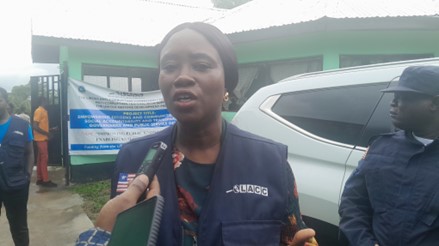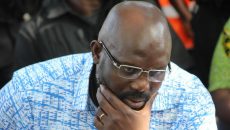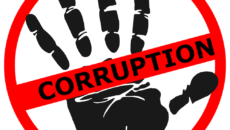GBARNGA, Bong – Amid the ongoing prosecution of officials from former Pres. George Weah’s government, the executive chairperson of the Liberia Anti-Corruption Commission, Alexandra Zoe, says the LACC has sought to allay concerns that the agency is only targeting some persons.
Speaking in Gbarnga on July 31 at the beginning of a three-day anti-corruption training, Zoe said the LACC is looking at the issues of corruption holistically and is not targeting any specific group of people as it is being wrongly perceived by some in the public.
She clarified that the ongoing prosecution of corruption cases is based on audit reports the General Auditing Commission submitted to the National Legislature, which she said also includes corruption allegations against current government officials.
On July 29, several senior former government officials in former president George Weah’s administration were indicted on numerous crimes, including economic sabotage; misuse of public money, property, or record; theft and/or illegal disbursement and expenditure of public money; theft of property; criminal facilitation; and criminal conspiracy. They are accused of conspiring and colluding to transfer US$500,000 and over L$1 billion (US$5.4 million) to the Financial Intelligence Agency’s accounts and withdrawing the same amounts shortly after.
They included Samuel D. Tweah, the former finance minister; Nyenati Tuan, former acting justice minister; Stanley D. Ford, former director of the Financial Intelligence Agency; Moses P. Cooper, former comptroller of the Financial Intelligence Agency; and Jefferson Karmoh, former national security advisor.
LACC is leading the prosecution. According to FrontPage Africa, all the defendants were apprehended except Tweah and Ford. The three former officials apprehended have since posted bonds of US$12 million, the report added.
“We are going to deal with corruption from every area, be it in the past or current government,” Cllr. Zoe said. “This is a movement, and that is why we are calling on everyone to join us, we cannot do it on our own. We rely on the public for intelligence; we rely on them for their support too.”
She continued: “It is now time to just basically educate our entire populace about the issue of corruption because corruption is something that hinders development, and so there should not be a culture of impunity or culture of acceptance. Because if we don’t hold our public officials or people who are in top offices, or if we don’t even hold ourselves accountable, then where are we heading as a nation and people?”
Featured photo by Patrick Tokpah



